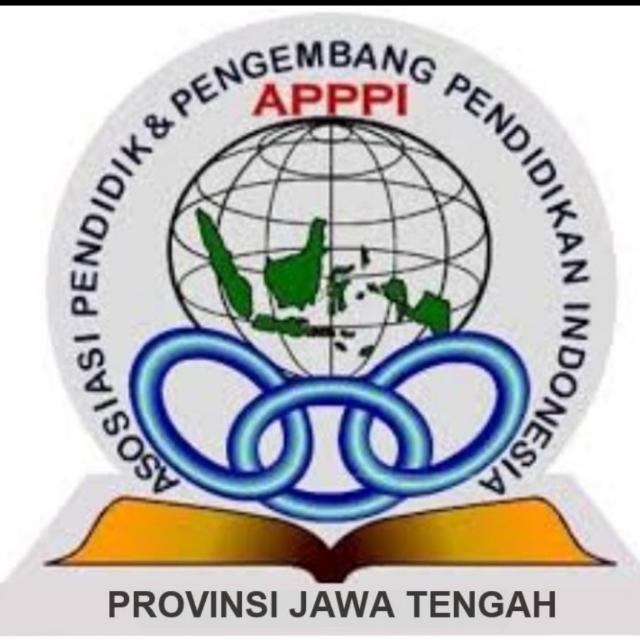Peranan Geografi Sebagai Poros Pembangunan di Era Revolusi Industri 4.0 dan Society 5.0
Keywords:
peranan geografi,, poros pembangunan, , revolusi industri, , society 5.0Abstract
In the era of the Industrial Revolution 4.0, the development of digital technology and the internet has changed the way people work, interact and access information. Geography plays an important role in managing this change, including in the development of digital infrastructure, spatial data analysis, and supply chain management. Geography also plays a role in supporting integration between physical and digital sectors, such as location-based logistics and smart city center development. Society 5.0, which emphasizes combining digital technology with a human-centred society, requires a deep understanding of the interrelationships between humans, the environment and technology. Geography can help map and analyze social, cultural and economic dynamics in society 5.0. Through a geospatial approach, geography can also integrate data and knowledge across sectors to facilitate better decision-making in addressing complex challenges, such as climate change, social inequality and natural resource management. In this era, geography also plays a role in developing sustainable development concepts and strategies. By considering geographical aspects such as location, environmental conditions, and resource availability, geography can help plan environmentally friendly infrastructure development, increase resilience to natural disasters, and optimize the efficient use of resources. In conclusion, geography has an important role as the axis of development in the era of the Industrial Revolution 4.0 and Society 5.0. The discipline of geography starting from elementary school to the highest level is needed to assist in the management of technological and societal changes, socio-economic analysis, and the development of sustainable development strategies. In facing future challenges, the application of geographic knowledge is the key to achieving sustainable and inclusive development.
References
Ahdar, A., Akbar, M., & Zurahmah, Z. (2022). PEMBELAJARAN IPS DALAM MENYAMBUT SOCIETY 5.0. Prosiding Pendidikan dan Pembelajaran Berbasis Multidisciplinary di Era Society 5.0, 1, 24-29.
Dinisari, M. C. (2019).Geografi Berperan Penting Hadapi Revolusi Industri 4.0. Diakses tanggal 2 Mei 2023. https://m.bisnis.com/amp/read/20191203/15/1177414/geografi-berperan-penting-hadapi-revolusi-industri-4.0
Furqan, M. H., Yanti, S., Azis, D., Kamza, M., & Ruslan, R. (2020). Analisis Konten Nilai Cinta Tanah Air (Nasionalisme) dalam Materi Mata Pelajaran Kurikulum Geografi. Jurnal Serambi Ilmu, 21(1), 48-63.
Junior, D. (2021). Implementasi Metode E-Learning Melalui Aplikasi Google Classroom Dalam Mata Pelajaran Geografi Di Sman 1 Bantarkawung. Proceeding Umsurabaya, 1(1).
Letak Geografis Wilayah Indonesia. Diakses Tanggal 4 Mei 2023. https://Www.Sdnpb01.Sch.Id/Materi-Pembelajaran-Kelas-5-Tema-9-Sub-Tema-1-Pembelajaran-Ke 3#:~:Text=Letak%20geografis%20adalah%20letak%20atau,Terhadap%20wilayah%20lain%20di%20sekitar
Mustika, F. (2022). Karakteristik Geografis Indonesia dalam Pendidikan IPS SD. Pendidikan IPS Sekolah Dasar, 227.Nursyifa, A. (2019). Transformasi Pendidikan Ilmu Pengetahuan Sosial Dalam Menghadapi Era Revolusi Industri 4.0. Journal Of Civics And Education Studies, 6(1), 51-64.
Nursyifa, A. (2019). Transformasi pendidikan ilmu pengetahuan sosial dalam menghadapi era revolusi industri 4.0. Journal of Civics and Education Studies, 6(1), 51-64.
Pemanfaatan Sistem Informasi Geografis Mendukung Revolusi Industri 4.0.(2019) Diakses Tanggal 2 Mei 2023. https://Unmuhpnk.Ac.Id/Internal-534-Pemanfaatan-Sistem-Informasi-Geografis-Mendukung-Revolusi-Industri-4-0#Gsc.Tab=0
Sari, T. R. (2023). PARADIGMA PENDIDIKAN GEOGRAFI DAN TANTANGAN GLOBAL PADA MASA KINI: Pendidikan Geografi, Dimensi Ruang, Nasional, Global. Jurnal Penelitian Multidisiplin, 2(1), 148-152.
Senen, A. KONSEP-KONSEP IPS (GEOGRAFI, SEJARAH, EKONOMI, SOSIOLOGI, ANTROPOLOGI) DALAM KONTEKS LOKAL, NASIONAL, DAN GLOBAL.
Suwirta, A., & Rosdianti, S. R. (2014). Pendidikan IPS-Geografi Dalam Perspektif Global: Peranan Dan Tantangannya Dalam Konteks Ke-Indonesia-An. ATIKAN, 4(1).
Triyadi, Y. (2020). Peranan Pojok Baca dalam Menumbuhkan Minat Baca Siswa Sekolah Dasar. Jurnal Inovasi Pendidikan Dan Pembelajaran Sekolah Dasar, 3(2), 48- 57.
Kurniawan, W., & Sutopo, A. (2021). Implementasi Pojok Baca Untuk Meningkatkan Minat Baca Siswa MI Muhammadiyah Kartasura. PaKMas: Jurnal Pengabdian Kepada Masyarakat, 1(1), 37-42.
Masfingatin, T., Pamungkas, N. B., Anggraini, P., & Sakti, A. S. (2020). Penataan Ruang Pojok Baca Cendekia di Desa Sundul Kecamatan Parang Magetan. Buletin Udayana Mengabdi, 19, 283-289.
Prayoga, W. D., Bakri, M., & Rahmanto, Y. (2020). Aplikasi Perpustakaan Berbasis Opac (Online Public Access Catalog) Di Smk N 1 Talangpadang. Jurnal Informatika Dan Rekayasa Perangkat Lunak, 1(2), 183-191.
Rofi'uddin, M. A., & Hermintoyo, H. (2017). Pengaruh Pojok Baca Terhadap Peningkatan Minat Baca Siswa di SMP Negeri 3 Pati. Jurnal Ilmu Perpustakaan, 6(1), 281-290.
Downloads
Published
How to Cite
Issue
Section
License
Copyright (c) 2023 Pena Edukasia

This work is licensed under a Creative Commons Attribution-ShareAlike 4.0 International License.









